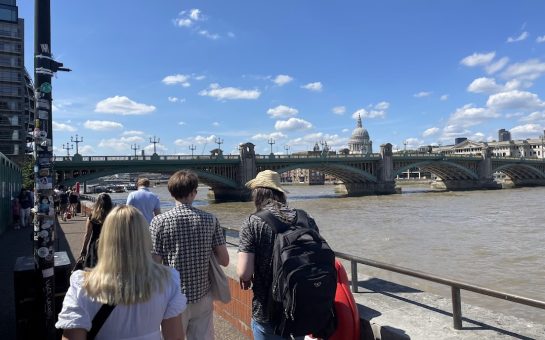“The impact of lockdown is huge on the young people we support,” explained Meg Scott, a youth support worker in Twickenham.
This is just one of numerous support workers, who have come forward to express concern about the impact of lockdown on the welfare of teenagers in the capital.
It comes after a survey revealed that nearly a third of the capital’s youth centres face closure within six months as they struggle to operate during the pandemic.
Scott explained how her youth club, Heatham House, has gone from supporting 250 young people a week to engaging with just 20 online.
The sharp decline in the number of people the centre supports is partly as a result of the digital divide, with families living in poverty not able to access a device.
She said: “The impact of lockdown is huge on the young people we support. Mental health issues are rising and young people are engaging less and less as they lose enthusiasm towards staring at a screen all day.
“Lack of social engagement with their peers is a huge issue and many families are shut inside small flats with lots of people and not a lot of room or no garden.”
Scott explained the importance of her youth club as an outlet for vulnerable young people who need help.
She said: “The youth club is important for young people to have a safe space to come to engage with youth workers and receive informal advice and guidance.
“We work with many young people that have involvement with other services such as social services, and we are able to offer them a lot more time and a variety of activities.”
Partially funded by Richmond Council, Heatham House still relies on its own revenue streams, which have been particularly impacted by lockdown.
A recent report published by charity London Youth found that 47% of its 650 members had to furlough staff, while 78% are working with fewer people than before lockdown.
The report said: “Employment, access to services and support, mental health – the lockdown has caused havoc with so many services and has amplified stresses that were already present pre-lockdown.”
Mayor of London Sadiq Khan has warned the capital’s services for young people face going “back to square one” unless the Government provides immediate support for the city’s vital youth clubs and community organisations.
But for Scott, the crisis has also had a deeply personal impact.
She said: “I rely on engagement with young people as much as they rely on us. It keeps me feeling young and alive and without that, I have felt lost at times.
“I am really looking forward to being able to reopen and catching up with the young people and giving them some normality and a safe space to come and finally have fun.”
This was the case for another youth worker in south west London.
Wishing to remain anonymous, they explained the impact of understaffing on their ability to carry out their role.
They said: “Being understaffed meant that we have had to work longer days and hours as a result. It can be hard for any professional to see so many people in need and for it not to affect them in some way or want to make a change.
“With anyone working in a caring or profession where you work with people directly it can be hard but you need to have your own outlets.
“Be it going for walks, having time with family and friends, being creative or something else you enjoy.”
The youth worker described that while their youth club was able to sustain their funding during the pandemic, many youth services are not as lucky.
They said: “For many youth services, when a member of staff leaves or takes a secondment their youth service job is often not re-recruited and the position often taken as savings instead of recurring someone to the post.
“This then has a knock-on effect as it means some services have to start applying for money to have staff as often the needs of the community are greater than the cut-down youth service can offer.
“This has meant we have had to apply for money through grants in order to keep up with the needs of the community.”




